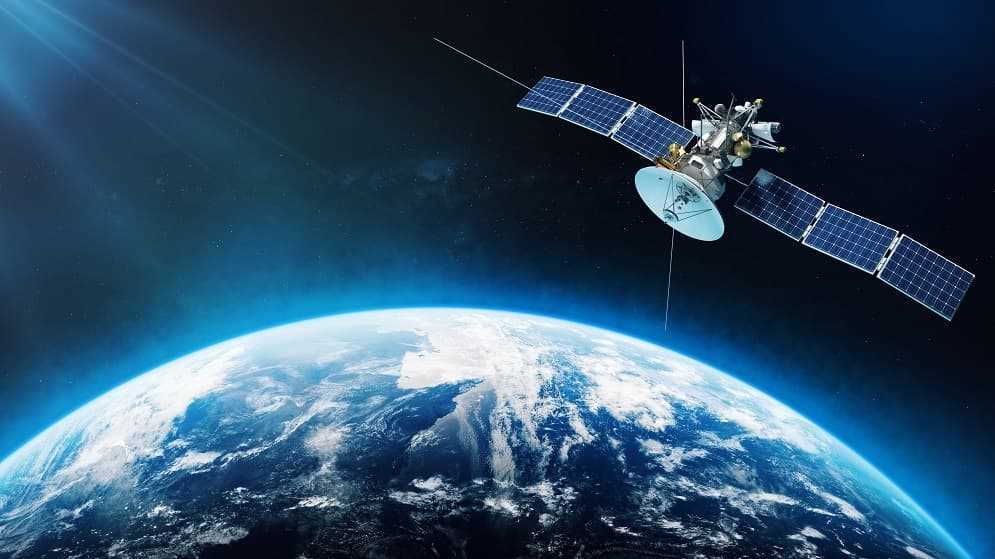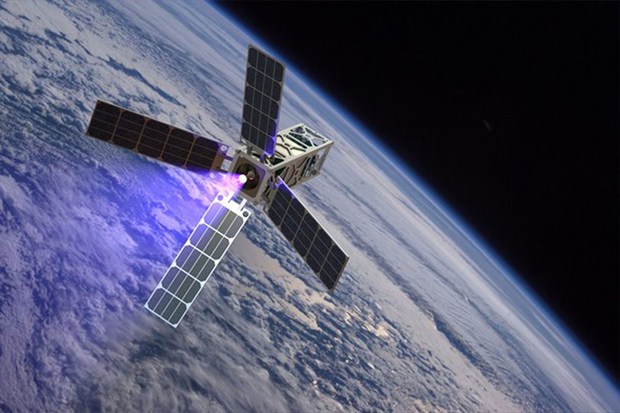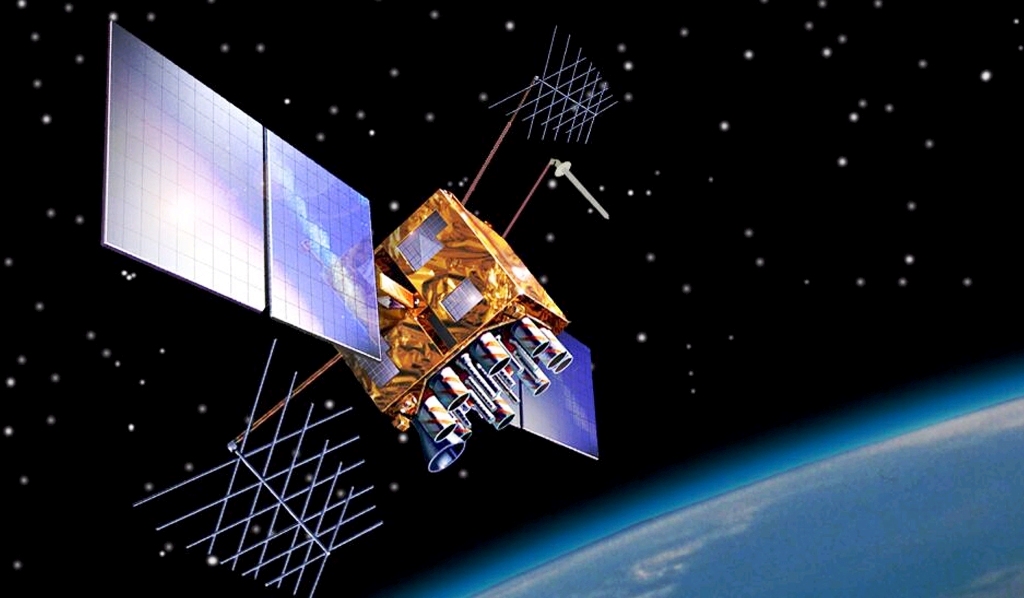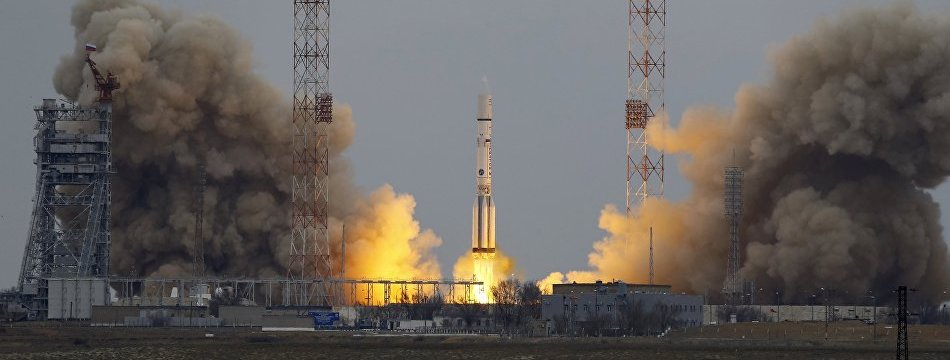The Federal Government (FG) of Nigeria will acquire two more satellites by the year 2025, the Nigerian Communication Satellite (NIGCOMSAT) Ltd has revealed.
TheNewsGuru.com (TNG) reports Director and Chief Executive Officer (CEO) of NIGCOMSAT, Mr Abimbola Alale made this known on Thursday.
Mr Alale made this known in his address at the organization’s stakeholder forum held at the Providence Hotel, Ikeja, under the theme: “NIGCOMSAT Ltd, The Present and the Future”.
Alale said that it was targeting 2025 for the acquisition of two additional satellites to boost its global profile as a satellite operator.
He posited that the future of the organisation was bright as it enjoyed immense support from the supervising ministry, hence the inspiration to perform better.
“For us at NIGCOMSAT Ltd, the future is bright. The support we have enjoyed from our ministry has inspired us to do more.
“l am pleased to inform you of our desire to acquire more satellites between now and 2025 with the NigComSat-2 Hight Throughput Satellite, due for launch in 2023, and the NigComSat-3 that will be launched in 2025.
“This will not only inspire confidence in our customers and channel partners, but also place NIGCOMSAT Ltd in the front line of communication satellite operators with a fleet of satellites in orbit,” he said.
“I specially acknowledge the relentless efforts of Prof. Isa Ibrahim Pantami, the Hon. Minister of Communications and Digital Economy, on the strategic vision to building a digital Nigeria.
“He is also repositioning the Ministry, Departments and Agencies (MDA) under his supervision, to be among the major contributors to the nation’s economy, as well as his support to NIGCOMSAT Ltd in the growth of the nation’s Gross Domestic Product (GDP).
“Our bid to provide an advance satellite communication solution as our modest contributions to the nation’s digital economy service infrastructure cannot be overemphasized; as one of the key players recognized by the Nigeria National Broadband Plan (NNPB 2020-2025).
“As part of VSAT/TVRO capacity development programme, NIGCOMSAT has trained 600 youths across the six geo-political zones in the country,” he said.
Alale said that the trained personnel would be actively involved in the digital economy and thus bringing the desirable results to the country.
“These youths have been equipped with tools to participate in growing the digital economy’s timely achievement of NIGCOMSAT’s roles as specified in the National Broadband Plan 2020-2025.
“Satellite communications is a technology that is rapidly changing. In view of this, NIGCOMAT has continued to build capacity that matches global trends and requirements.
Last year, NIGCOMSAT with the support of some of the stakeholders, sponsored four teams, Astromania, Floews, Future Generations, and Pyloops, to compete in the ActInSpace® international innovation contest of 100 cities across five continents.
“Nigeria won the audience award, which was based on the popularity of the video created by Team Astromania to provide information about their solution,” he said.
Alale also reviewed other achievements of NIGCOMSAT, such as procurement of DIALOG HUB with 5IF for the satellite broadband Ka services.
“Quality of service and customer experience are very important in service delivery. NIGCOMSAT has acquired the latest DIALOG HUB with 5IF for the satellite broadband Ka services, as well as built a stronger relationship with our channel partners.
“Our business processes are seamless in accordance with International Standard Organisation’s (ISO) certification.
“NIGCOMSAT, in its bid to achieve its ambition as the leading satellite communication solutions provider in Nigeria and Africa, obtained approval early in 2020 to form two subsidiary companies (SUBCOs) the Satellite Infrastructure Company SIC.
“They are to provide satellite upstream services such as Transponder leasing, and In-Orbit-(IOT) services, Carrier Spectrum Management (CSM) services, and the Satellite Broadcasting and Broadband Company (SBBC) to provide satellite downstream services, such as broadband internet services, Broadcasting (DTH) services etc,” he said.
Alale added “The SUBCOs were formed to carry out commercial businesses on behalf of NIGCOMSAT with strategic partners and expand its business operations in the information and communications technology space.
“NIGCOMSAT realises the need to strategically position its subsidiaries for potential opportunities and risks, put in place by operational structures to facilitate its business aspirations.
“Accordingly, the Minister has given the company a set of Key Performance Indicators (KPIs) that are linked to the development of a strategic document, which identifies the key market opportunities and risks in the Nigerian market as well as to define the SUBCO’s operational framework.
“More importantly, as apart of the Government-to-Government Business, through some of you, the stakeholders.
“The Special Project Office of NIGCOMSAT Ltd has successfully deployed modest and ubiquitous services to the health sector by providing an e-platform for automation of work processes at the National Health Insurance Scheme (NHIS) offices across the country,” he said.
Alale revealed that NIGCOMSAT Ltd had in 2020 provided satellite connectivity services via NigComSat-1R for the live broadcast of the virtual commissioning of the Ajaokuta, Kaduna and Kano (AKK) gas pipeline project by President Muhammadu Buhari, GCFR.
“Another milestone was the achievement, in September 2020, of our collaboration with Thales Alenia Space of France, and the Agency for Aerial Navigation Safety in Africa and Madagascar (ASECNA).
“This is to provide a Satellite-based Augmentation System (SBAS) using NigComSat-1R Navigational services for the first time over Africa and the Indian Ocean.
“The demonstration of real SBAS flight in Lome (Togo) using fixed wing Aircraft and Duoala (Cameroun), using Rotor Aircraft. Demonstration was also done in Brazzaville (Congo).
“Apparently, the stakeholder forum is part of our efforts to rub minds with you on areas you may need our expansion and improvement, in line with our core mandate and our core values,” he said.




